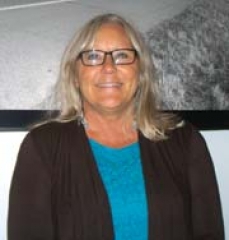Sober Truth on Preventing Underage Risky Behavior
It is critical for parents to talk with their children about the dangers of tobacco, alcohol and drugs.
By: Amy Graham | Category: Education | Issue: October 2013

Amy Graham, project director, STOP-ACT, Rogers County and Chelsea.
As a parent, you play a vital role in helping your child avoid risky behaviors. Amy Graham, project director of STOP-ACT, Rogers County and Chelsea, offers parents tips on how to talk to your child about the dangers of tobacco, alcohol and drugs:
Start early. Make sure your child knows right from the start that you think it’s important to stay safe and avoid drugs. Many kids start using tobacco by age 11 and are addicted by age 14. Between ages 9 and 13, children start to think that using alcohol is okay. At age 12 or 13, some kids are already abusing drugs like marijuana or prescription pain relievers.
Teach your child the facts. Your child needs to know how using tobacco, alcohol and drugs can hurt the body and cause problems at home and in school. Kids who know the facts are more likely to make good choices.
Give your child clear rules. Not wanting to upset their parents is the number one reason kids give for not using drugs. Your child will be less tempted to use tobacco, alcohol and drugs if you explain your rules clearly. Explain that you set rules to keep your child safe. Tell your child you expect her not to use tobacco, alcohol or drugs. Let your child know what will happen if he breaks the rules. Praise your child for good behavior.
Find out what your child already knows. By preschool, most children have seen adults smoking cigarettes or drinking alcohol, either in real life, on TV, or on the Internet.
Be prepared to answer your child’s questions. Research shows that kids do listen to their parents. Children who learn about drug risks from their parents are less likely to start using drugs.
Talk with your child about how to say “no.” Kids say that they use alcohol and other drugs to “fit in and belong” with other kids. Talk to your child about how to say “no.” Your child can make a plan for when other kids offer tobacco, drugs or alcohol. If your child is already a teen, remember it’s never too late to start the conversation about avoiding drugs. Even if your teen may have tried tobacco, alcohol or drugs, you can still talk about making healthy choices and how to say “no” next time. When you talk about the dangers of drugs, don’t forget about drugs that may already be in your home. When not taken safely, prescription and over-the-counter medicines like cough syrup can be just as addictive and dangerous as other drugs. Make sure to talk to your kids about these dangers, and store medicines in a locked cabinet.
Set a good example for your kids. Never take someone else’s prescription medicine or give yours to anyone else. If you smoke, try to quit. If you drink alcohol, don’t drink too much or too often. If you use drugs, find a treatment program near you. Never drink or use drugs and drive. Get help if you need it. If you think you or your child may have a drug or alcohol problem, get help. Don’t wait.
What about cost? Drug and alcohol assessments for teens are now covered under the Affordable Care Act, the health care reform law passed in 2010. Depending on your insurance plan, your child may be able to get an assessment at no cost to you.
For more information, go to www.stopalcoholabuse.gov. Visit our Facebook page at Rogers County Sober Truth.
For more information, contact
Volunteers for Youth
(918) 859-6797
Volunteers for Youth
For more information, contact:
Volunteers for Youth
(918) 343-2530
1810 N. Sioux Ave. Ste. A | Claremore, OK
volunteersforyouth.com
![]()
More about Volunteers for Youth:
More ArticlesCurrent Coupons/OffersSubscribe
For Free!



